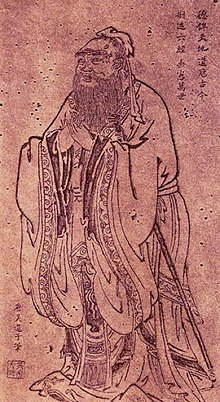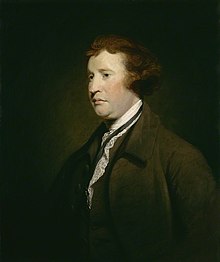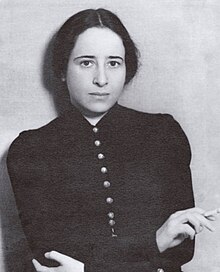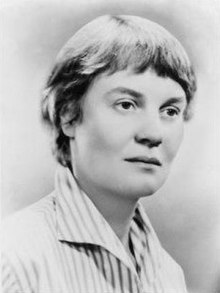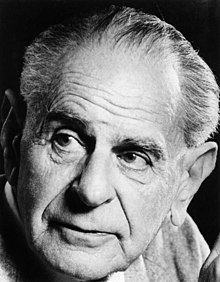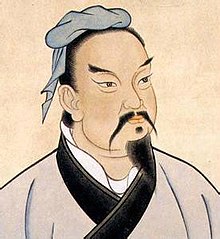
Philosophers of culture
Samuel Benjamin Harris (born April 9, 1967) is an American philosopher, neuroscientist, author, and podcast host. His work touches on a range of topics, including rationality, religion, ethics, free will, neuroscience, meditation, psychedelics, philosophy of mind, politics, terrorism, and artificial intelligence.
16 episodes
Episodes in this category also belong to the following categories:
Averroes
Melvyn Bragg discusses the philosopher Averroes who worked to reconcile the theology of Islam with the rationality of Aristotle, achieving both fame and infamy.
5 October 2006
Featuring: Amira Bennison, Peter Adamson, Anthony Kenny
PhilosophyEpistemologistsCritics of atheismPhilosophers of literaturePhilosophers of logicLogiciansSocial philosophersAristotelian philosophersArabic-language commentators on AristotleCritics of deismPhilosophers of culturePhilosophers of languageIslamic philosophersPhilosophers of psychologyPhilosophers from al-AndalusOntologistsPhilosophers of mindPolitical philosophersPhilosophers of religionPeople from Córdoba, Spain12th-century Muslim theologiansPhilosophers of sciencePhilosophers of historyCritics of ChristianityConfucius
Melvyn Bragg discusses the philosophy of Confucius, a body of ideas which, more than any other philosophy, has defined what it is to be Chinese.
1 November 2001
Featuring: Frances Wood, Tim Barrett, Tao Tao Liu
PhilosophyFounders of religionsPhilosophers of culturePhilosophers of law5th-century BC historiansPhilosophers of educationSocial philosophers5th-century BC Chinese writers, 6th-century BC Chinese writers, Chinese political philosophers, Deified Chinese men, Zhou dynasty philosophers, Zhou dynasty writers5th-century BC religious leaders, 6th-century BC religious leadersAphoristsClassical humanistsEdmund Burke
Melvyn Bragg and guests discuss the work of the philosopher, politician and writer Edmund Burke, whose views on revolution in America and France were hugely influential.
3 June 2010
Featuring: Karen O'Brien, Richard Bourke, John Keane
PhilosophyBritish political philosophersEnglish libertariansNatural law ethicistsIrish Freemasons, Irish libertarians, Irish people of English descentBritish MPs 1774–1780Historians of the French RevolutionEnglish people of Irish descent18th-century philosophersClassical liberalismStreathamitesSocial philosophers18th-century English writersPhilosophers of economics18th-century Irish philosophersVirtue ethicistsCritics of deism18th-century English philosophersPhilosophers of cultureIrish AnglicansPhilosophers of education18th-century Irish writersPhilosophers of artBritish MPs 1784–1790, British MPs 1790–1796Writers from Dublin (city)18th-century Anglo-Irish people, 18th-century Irish male writersRectors of the University of GlasgowConservatismPolitical philosophersPhilosophers of religionAnglican philosophersAlumni of Trinity College DublinBritish MPs 1780–1784, Members of the Parliament of Great Britain for English constituenciesPhilosophers of history18th-century English male writersHannah Arendt
Melvyn Bragg and guests discuss the ideas of Hannah Arendt who examined totalitarianism and politics and, when covering the Eichmann trial, explored 'the banality of evil'.
2 February 2017
Featuring: Lyndsey Stonebridge, Frisbee Sheffield, Robert Eaglestone
PhilosophyPrinceton University facultyGerman political philosophersExistentialists20th-century American women writersIntellectual historians, University of Chicago facultyUniversity of Marburg alumniJewish existentialistsWomen religious writersPhilosophers of lawMembers of the American Academy of Arts and LettersSocial philosophersPhilosophy writersPhilosophers of technologyAmerican political philosophers20th-century German women writersGerman women philosophersFellows of the American Academy of Arts and SciencesPhilosophers of cultureThe New School faculty20th-century American essayistsExilliteratur writersJewish agnosticsGerman agnosticsGerman Ashkenazi JewsAmerican Ashkenazi Jews, American Zionists, American agnostics, German Zionists20th-century German philosophers20th-century American philosophers20th-century German non-fiction writersGerman ethicists, German philosophers of educationHeidelberg University alumniPolitical philosophersJewish emigrants from Nazi Germany to the United StatesPhilosophers of scienceScholars of antisemitismPhilosophers of historyAmerican philosophers of educationHobbes
Melvyn Bragg discusses Thomas Hobbes, the great 17th century philosopher who famously said that ungoverned man lived a life that was ‘solitary, poor, brutish and short’.
1 December 2005
Featuring: Quentin Skinner, David Wootton, Annabel Brett
PhilosophyEpistemologistsMaterialistsNatural law ethicistsAlumni of St John's College, Cambridge17th-century English philosophersTheorists on Western civilizationEnglish physicistsPhilosophers of lawSocial philosophersBritish philosophers of educationRhetoric theoristsBritish critics of ChristianityPhilosophers of culturePhilosophers of language17th-century writers in LatinBritish critics of religionsCritics of the Catholic Church17th-century English writersPolitical realistsPhilosophers of mathematicsEnglish theologiansEmpiricistsOntologistsPhilosophers of mindMetaphysiciansPhilosophers of religionThomas HobbesEnglish political philosophersPhilosophers of sciencePhilosophers of history17th-century English male writersIris Murdoch
Melvyn Bragg and guests discuss the growing prominence of the philosophy of one of the most celebrated novelists of the 20th century, who developed her ideas in response to WWII.
21 October 2021
Featuring: Anil Gomes, Anne Rowe, Miles Leeson
Culture20th-century atheistsBritish people of Irish descentAlumni of Newnham College, CambridgeBritish socialistsBritish ethicistsPhilosophers of literatureJames Tait Black Memorial Prize recipientsAnalytic philosophersPhilosophy writersPlatonistsVirtue ethicistsFellows of the American Academy of Arts and SciencesBritish parodistsPhilosophers of cultureAlumni of Somerville College, OxfordBritish women philosophersBritish historians of philosophyBritish atheists20th-century British philosophersAtheist philosophersPhilosophers of history20th-century British non-fiction writersJorge Luis Borges
Melvyn Bragg and guests discuss the life and work of the Argentinian master of the short story, Jorge Luis Borges.
4 January 2007
Featuring: Edwin Williamson, Efraín Kristal, Evelyn Fishburn
Postmodern writers, Recipients of the Legion of HonourBlind writersLiteracy and society theoristsPhilosophers of literatureTrope theoristsPhilosophers of identityMetaphor theoristsAphoristsJerusalem Prize recipientsCommanders Crosses of the Order of Merit of the Federal Republic of GermanyPhilosophers of cultureAnthologistsPhilosophers of artLiterary theorists20th-century essayistsPhilosophers of mathematics20th-century translatorsPhilosophers of timeMagic realism writers20th-century mysticsPhilosophers of mindLecturersBlind poetsSonneteersHaiku poetsSpanish-language poetsPhilosophers of pessimismMetaphysics writersSurrealist writersKierkegaard
Melvyn Bragg and guests discuss the rich and radical ideas of Soren Kierkegaard, often called the father of Existentialism.
20 March 2008
Featuring: Jonathan Rée, Clare Carlisle, John Lippitt
PhilosophyEpistemologists19th-century essayistsChristian humanistsUniversity of Copenhagen alumniMetaphilosophersExistentialistsPhilosophers of deathPhilosophers of literatureExistentialist theologians19th-century male writersChristian poetsSocial philosophersPhilosophy writersAphoristsChristian ethicistsIrony theoristsPhilosophers of culturePeople celebrated in the Lutheran liturgical calendarPhilosophers of psychologyPhilosophers of artChristian radicalsOntologistsPhilosophers of lovePhilosophers of mindMetaphysicians19th-century pseudonymous writers19th-century deaths from tuberculosisPhilosophers of religionMarx
Melvyn Bragg discusses Karl Marx who once said that while other philosophers wanted to interpret the world, he wanted to change it. And he changed the world with his Communist Manifesto.
14 July 2005
Featuring: A. C. Grayling, Francis Wheen, Gareth Stedman Jones
PhilosophyEpistemologistsCritics of political economySocialist feministsHumboldt University of Berlin alumniMaterialistsUniversity of Jena alumniGerman political philosophersGerman anti-capitalists, German socialist feminists, Jewish communistsFellows of the Royal Society of Arts19th-century German philosophersTheorists on Western civilizationStateless peoplePamphleteersMarxist theoristsPhilosophers of lawCritics of work and the work ethicSocial philosophersPhilosophers of technologyMembers of the International Workingmen's AssociationPhilosophers of economicsWriters about religion and scienceWriters about globalizationUniversity of Bonn alumniPhilosophers of culturePhilosophers of educationPhilosophical anthropologyGerman revolutionariesAnti-consumerists19th-century atheistsCritics of religionsAtheist philosophersCritics of JudaismEconomic historians, German sociologistsOntologistsPhilosophers of mindJewish socialistsMetaphysiciansGerman writers on atheismAnti-nationalistsGerman Marxist writersPhilosophers of religionBurials at Highgate CemeteryWriters about activism and social change19th-century German historiansPhilosophers of sciencePhilosophers of historyGerman male non-fiction writersAnti-imperialistsMill
Melvyn Bragg discusses the 19th century political philosopher John Stuart Mill and his treatise On Liberty which is one of the sacred texts of liberalism.
18 May 2006
Featuring: A. C. Grayling, Janet Radcliffe Richards, Alan Ryan
PhilosophyBritish political philosophersHonorary Fellows of the Royal Society of EdinburghEnglish libertariansBritish philosophers of languageConsequentialistsInfectious disease deaths in FranceEnglish socialistsUtilitariansEnglish suffragistsTheorists on Western civilizationBritish ethicistsBritish socialistsEnglish political writersLogiciansEnglish feminist writers, English feministsBritish free speech activistsPhilosophers of sexualityPhilosophy writersBritish classical liberal economistsPhilosophers of economicsBritish social liberals19th-century English non-fiction writersFellows of the American Academy of Arts and SciencesPhilosophers of cultureRectors of the University of St AndrewsPhilosophers of psychologyBritish philosophers of mindEnglish logicians19th-century English philosophersBritish philosophers of logicEnglish autobiographersAnglo-ScotsUK MPs 1865–1868Empiricists19th-century English writersVoting theoristsEuropean democratic socialistsEnglish essayistsEnglish political philosophers19th-century English essayistsEnglish male non-fiction writersEnglish non-fiction writersPhilosophers of scienceEnglish people of Scottish descentPhilosophers of historyEnglish republicansScholars of feminist philosophyEnglish agnosticsBritish male essayistsPopper
Melvyn Bragg discusses the philosopher Karl Popper, author of The Open Society and a seminal thinker about science.
8 February 2007
Featuring: John Worrall, Anthony O'Hear, Nancy Cartwright
PhilosophyBritish political philosophersEpistemologistsCambridge University Moral Sciences ClubForeign associates of the National Academy of SciencesTheorists on Western civilizationBritish ethicistsPhilosophers of logicKnights BachelorLogiciansPresidents of the Aristotelian SocietySocial philosophersPhilosophers of technologyRationalistsAristotelian philosophersPhilosophers of economicsWriters about religion and scienceWriters about globalizationBritish philosophers of educationBritish social liberalsRecipients of the Austrian Decoration for Science and ArtBritish male non-fiction writersPhilosophers of culturePhilosophers of mathematicsBritish historians of philosophyJewish agnosticsAcademics of the London School of Economics, British philosophers of scienceCritics of religions20th-century British philosophers20th-century Austrian philosophers, Austrian agnostics, Austrian essayists, Austrian logicians, British agnostics, British logicians, British people of Austrian-Jewish descent, Naturalised citizens of the United Kingdom, Writers from ViennaOntologistsPhilosophers of mindRecipients of the Pour le Mérite (civil class)MetaphysiciansJewish philosophersPolitical philosophersPhilosophers of religionBritish consciousness researchers and theoristsJewish ethicistsMembers of the Order of the Companions of HonourWriters about activism and social change20th-century British essayistsCritics of MarxismPhilosophers of historyFellows of the British AcademyMetaphysics writersBritish male essayistsRousseau on Education
Melvyn Bragg and guests discuss Rousseau's ideas on how to educate children so they retain their natural selves and are not corrupted by society.
10 October 2019
Featuring: Richard Whatmore, Caroline Warman, Denis McManus
Philosophy18th-century male musicians18th-century philosophersConverts to Roman Catholicism from Calvinism, Romantic philosophersPhilosophers of literatureAge of EnlightenmentProto-evolutionary biologistsSocial philosophersPhilosophers of economicsBurials at the Panthéon, ParisFrench political philosophersCatholic philosophersPhilosophers of culturePhilosophers of educationPhilosophers of artPeople with hypochondriasis18th-century classical composersDeist philosophersPhilosophers of mindContributors to the Encyclopédie (1751–1772)Classical-period composersAutobiographersEnlightenment philosophersWriters about activism and social changePhilosophers of scienceSimple living advocatesSpinoza
Melvyn Bragg discusses the philosopher Spinoza whose profound and complex ideas about God had him celebrated as an atheist in the 18th century.
3 May 2007
Featuring: Jonathan Rée, Sarah Hutton, John Cottingham
PhilosophyEpistemologistsMetaphilosophersDeterministsAge of EnlightenmentSocial philosophersPhilosophy writersRationalistsPhilosophers of culturePhilosophers of education17th-century writers in LatinCritics of the Catholic ChurchPeople of the Age of EnlightenmentCritics of JudaismOntologistsPhilosophers of mindMetaphysiciansJewish philosophersJewish translators of the BiblePhilosophers of religionPantheistsEnlightenment philosophersBaruch SpinozaPhilosophers of sciencePhilosophers of historySun Tzu and The Art of War
Melvyn Bragg and guests discuss the Chinese military adviser Sun Tzu from the 6th century BC and the influential work of military strategy associated with him, The Art of War.
1 March 2018
Featuring: Hilde de Weerdt, Tim Barrett, Imre Galambos
HistoryPhilosophers of cultureMilitary theoristsPhilosophers of educationPolitical realistsJourney to the West characters5th-century BC Chinese writers, 6th-century BC Chinese writers, Chinese political philosophers, Deified Chinese men, Zhou dynasty philosophers, Zhou dynasty writersPhilosophers of social sciencePeople whose existence is disputedPhilosophers of warTheoretical historiansAphoristsTolstoy
Melvyn Bragg discusses the life and times of the 19th century Russian writer Leo Tolstoy, whose novels such as War and Peace gave expression to the compelling moral and social questions of their day.
25 April 2002
Featuring: A. N. Wilson, Catriona Kelly, Sarah Hudspith
Epistemologists19th-century essayistsHonorary members of the Saint Petersburg Academy of Sciences19th-century non-fiction writers from the Russian EmpireGeorgistsPhilosophers of literatureChristian vegetariansRussian anarchistsMembers of the Serbian Academy of Sciences and ArtsSocial philosophers19th-century dramatists and playwrights from the Russian Empire, 19th-century short story writers from the Russian Empire, 20th-century Russian dramatists and playwrights, 20th-century Russian short story writers, Novelists from the Russian Empire, Philanthropists from the Russian Empire, Russian male dramatists and playwrights, Russian male novelists, Russian opinion journalists, Russian-language writersCorresponding members of the Saint Petersburg Academy of SciencesPhilosophers of culturePhilosophers of education20th-century essayistsOntologistsPhilosophers of mindMetaphysiciansRussian male journalistsPolitical philosophersPhilosophers of religionAnarchist writersWriters about activism and social changePhilosophers of historyChristian anarchists, Nonviolence advocates20th-century letter writersWittgenstein
Melvyn Bragg discusses how Ludwig Wittgenstein, one of the greatest philosophers of the modern age has influenced contemporary culture with his ideas on language.
4 December 2003
Featuring: Ray Monk, Barry Smith, Marie McGinn
PhilosophyEpistemologistsCambridge University Moral Sciences ClubMetaphilosophersPhilosophers of social scienceTheorists on Western civilizationWittgensteinian philosophersPhilosophers of logicAnalytic philosophersPeople with post-traumatic stress disorderBisexual male writersSocial philosophersPhilosophy writersOrdinary language philosophyFellows of Trinity College, CambridgePhilosophers of culturePhilosophers of languageLGBTQ mathematicians, LGBTQ philosophersPhilosophers of artBertrand Russell Professors of PhilosophyPhilosophers of mathematicsJewish agnostics20th-century British philosophersAlumni of Trinity College, CambridgeLinguistic turnOntologistsPhilosophers of mindAustrian people of Jewish descent, Austro-Hungarian military personnel of World War I20th-century Austrian philosophers, Austrian agnostics, Austrian essayists, Austrian logicians, British agnostics, British logicians, British people of Austrian-Jewish descent, Naturalised citizens of the United Kingdom, Writers from ViennaMetaphysiciansJewish philosophersBisexual military personnel20th-century British essayists20th-century British non-fiction writersBritish male essayists

